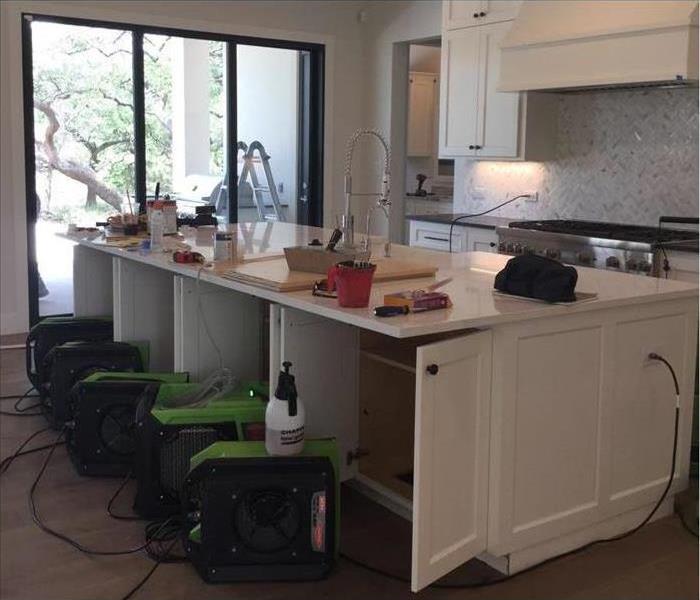Plan for Mitigating Water Damage
11/9/2022 (Permalink)
How to Clean Up Water Damage After a Water Leak
Water damage is one of the most expensive and time-consuming disasters you can experience. It's also one of the easiest to prevent: a little maintenance goes a long way toward keeping your home safe from water damage. This guide will walk through what you need to do in order to clean up after a water leak so that you can get back to normal life as soon as possible.
1. DOCUMENT AND MOVE
First, document the damage. Take photos of everything that was wet or damaged in any way. Also, if you can, take pictures of where the water came from and how it got there.
Next, move items to higher ground—or at least away from their current location on the floor—as quickly as possible. This will help prevent further damage and allow you to dry out your home more quickly later. Don't forget to move any valuables (like jewelry) out of harm's way too! After this initial step has been taken, remove all items that do need to be replaced due to water damage into a dry area (like another room), so they're not left sitting in puddles while they're drying out.
2. EXTRACT THE WATER
Once you've assessed the damage, it's time to start removing the water. There are several different ways to remove water from your property, it really just depends on the type of water and loss and the extent of the damage.
Once you've removed all of the standing water, use your nose and eyes as indicators for whether or not there are still places where water has pooled. Remember: If a light bulb goes out in an area where there isn't supposed to be any power running, that could mean there's still moisture somewhere!
3. CLEAN AND DISINFECT
Now that the area is dry, you can move on to disinfecting it. This will help to prevent mold and mildew growth, as well as other bacteria. It's important to note that not all disinfectants are safe for every surface—some can damage certain materials. So before buying a disinfectant, make sure you read the product label carefully so you know how much of the product to use and whether or not it will harm your floors or walls.
Another thing to keep in mind is that some disinfectants take longer than others to dry after application; most will dry within 24 hours but it's still best if you avoid walking on them until then.
4. SET UP DRYING EQUIPMENT
Use fans to circulate air. These will help speed up the drying process, especially in areas with high humidity. Set up dehumidifiers in your basement or garage to get rid of excess moisture and reduce odor. Place them on a timer so they turn off after they've sucked as much water out of the air as possible.
If you have a furnace fan, turn it on—it can pull in warm dry air from outside and push out old, damp air that's contributing to mold growth indoors.
5. INSPECT, REPAIR, AND REPLACE
You've got your water damage cleaned up. Now what?
It's time to inspect, repair, and replace items that have been damaged by the water. There are a few things you can do to help keep yourself on track when it comes to repairing things in your home:
- Make a list of damaged items.
- Keep it in one place so everyone knows what needs fixing and where they should look (remembering which rooms were affected by the leak).
- Take pictures of everything as well! You'll want to remember how bad it was before starting any repairs or replacements."
Takeaway:
With a little bit of time and effort, you can clean up your water damage. If the extent of the damage is serious, it is wise to call your local SERVPRO experts for assistance.
Hopefully, this article has helped you understand more about how to clean up water damage after a water leak. If you have any questions or comments, please leave them in the comment section below!






 24/7 Emergency Service
24/7 Emergency Service
